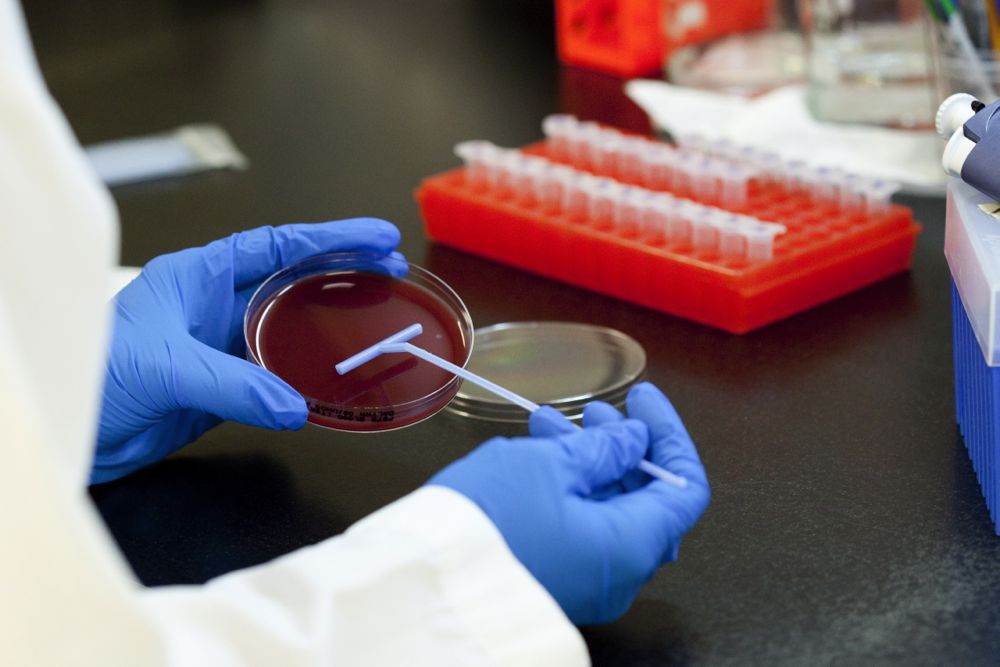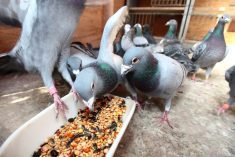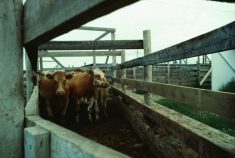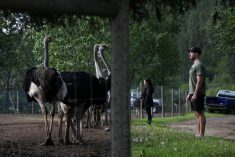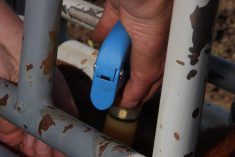None of the 50 ranch properties still under federal quarantine for bovine tuberculosis in southeastern Alberta and southwestern Saskatchewan have been released in the past two weeks, officials reported Thursday.
The Canadian Food Inspection Agency on Thursday resumed regular updates on its ongoing investigation into cases of bovine TB in the area.
As of Thursday, the probe’s status remains the same as it was on Dec. 21: six cattle are confirmed positive for TB and 50 properties are under quarantine, affecting about 26,000 animals. Most of the properties are in Alberta, with “no more than five” in Saskatchewan.
Read Also

U.S. livestock: Cattle strength continues
Cattle futures on the Chicago Mercantile Exchange were stronger on Friday, hitting fresh highs to end the week.
Apart from seven Alberta properties that had been released from quarantine by Dec. 21, no other controls have since been lifted.
On an “encouraging” note, officials said Thursday, apart from samples taken from the six TB-positive animals found to date, none of the samples tested so far in CFIA laboratories have shown lesions consistent with TB.
However, the agency said, that alone doesn’t prove a tested animal is negative for bovine TB. “Confirmation that an animal does not have TB can only be provided by confirmed negative results of a culture test.”
The overall investigation is still expected to take “several months” to complete, CFIA said.
The investigation began following a notice in late September from the U.S. Department of Agriculture that a single cow shipped from Alberta had tested positive for bovine TB at a U.S. slaughter plant.
The agency has previously said the “infected” herd — which includes the six TB-positive cattle and any cattle or calves known to have commingled with them — so far covers roughly 10,000 cattle across 18 of the 50 quarantined properties.
CFIA’s trace-out work — the tracking of animals that entered or left the infected herd — and trace-in work — learning how the disease was introduced into the infected herd — both continue, the agency added.
The trace-in activities “may lead to more quarantines, but this is not a sign that the disease is spreading; this is a normal procedure,” CFIA said Thursday.
Since last month, CFIA said Thursday, it has lined up a second processor in Alberta that’s able to take in more animals from the infected herd to be euthanized.
Any euthanized animals that test positive for bovine TB will be destroyed via rendering, the agency said previously. Meat from euthanized animals ruled TB-negative will be eligible for food use.
CFIA also said Thursday it has worked with Service Canada to set up a new toll-free phone line, open as of Wednesday, “to triage producer inquiries in the most efficient way possible.”
The toll-free phone number will be provided directly to producers affected by quarantines and movement controls, CFIA said.
Affected producers whose properties and animals are quarantined are eligible for compensation for a portion of their feed and yardage costs and related expenses, through the Canada-Alberta Bovine Tuberculosis Assistance Initiative (CABTAI), an AgriRecovery-funded program.
Alberta’s Agriculture Financial Services Corporation (AFSC), which is tasked with processing CABTAI applications and payments, resumed that work Wednesday after its branch offices closed Dec. 23 for the holidays. — AGCanada.com Network

